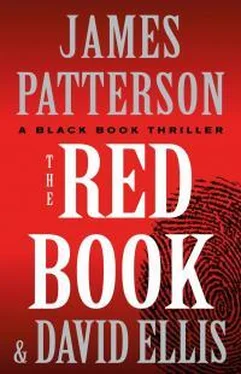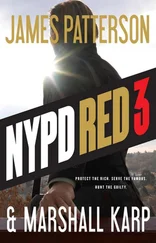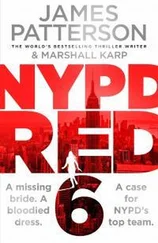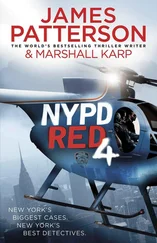She nods.
“My wife, she had depression, and then this thing with our daughter hit, and she couldn’t handle it. And I was too caught up with my daughter to realize how much it was killing my wife. So her eating a bullet? That wasn’t life being cruel. That was me fucking up. That was me failing her. You got that all down on your scorecard? Is get-to-know-ya time over?”
Not sure where all that came from. Those feelings about Valerie have always lurked under the surface, but I’ve rarely said them out loud. I don’t know why I picked now, with Carla, to unleash them. Probably the lateness of the hour, the stress, the fact that she’s been busting my balls all day with this passive-aggressive bullshit.
“My father had depression,” she says. “A chemical imbalance. It took him—it took us—a long time to realize it. It’s not always easy to recognize.”
Especially if you never see your wife because you’re working the night shift while she works days, trading off responsibilities for the baby. And then your daughter has a stroke, and you turn every ounce of your attention on her, ignoring your wife at the very time when her suffering has exponentially multiplied.
“And you know how many homicides I’ve solved since that happened, four years ago?” I say. “I’ll tell you, because yes, I keep count. Thirty-one. Thirty-fucking-one. So yeah, seeing a dead girl today, maybe it brought back some memories, and maybe my knees got shaky for three seconds. But I’m gonna put on my big-boy pants and solve this one, too.”
She looks over at me but doesn’t speak. A truce, détente.
“Let’s go say hello to Andre,” she says.
I remember Andre Oliver from when I was a high school kid. He was my age, but he went to Simeon, where he played power forward and drew the attention of virtually every Division I program in the nation. He was the next Magic, the next Jordan, graceful and powerful, a beautiful touch on the ball. He got a ride to U of I, which back then attracted most of the Chicago talent, but got kicked off the team freshman year after a rape charge, followed by a B and E that ended with him punching out the cop who busted him. He did some time, went to Europe to play, blew out his knee, and came back home, still a hoops legend but with an asterisk.
Now he’s involved in several ventures—basketball camps and a nightclub and his own rap label—but more important for our purposes, Andre Oliver is the undisputed leader of the K-Street Hustlers, who lost two of their soldiers today in a drive-by.
“So tell me why we don’t call ahead,” she says. “Andre’s gonna have a battalion covering him tonight.”
“We don’t call ahead because cops don’t call ahead. We show up when we want, where we want. We don’t ask permission.”
That’s not what she meant, but she takes the point anyway. We have to show we’re in charge.
I slow the car as we get close to his house, two miles away from K-Town. The streets are quiet, but they’re not deserted. We catch plenty of eyes as we pass.
Sentries. Andre’s gonna have ’em out in full force tonight. He’s hunkering down for an assault right now while planning one of his own in response.
I drive the speed limit, use my signal when we turn. Last thing I want to do is come storming up to the house.
I curb the car in front of Andre’s house, turn to my partner.
“Ready?” I say to her.
Chapter 13
THE BLOCK is covered on both sides with parked cars, most occupied by young men, heavily armed, who’d be letting everyone see their weapons if they hadn’t just been told that a cop car was coming around the corner.
The K-Street Hustlers are circling the wagons tonight, after the drive-by, preparing for war.
Andre Oliver’s house isn’t much to look at from the outside, a two-story brick building with a small lawn and wraparound porch. Two men on the porch stand up as Carla and I get out of our car. Our stars hang from lanyards around our necks, as if the flashing cherry on the dash and every other single thing about us didn’t already signal that we are cops.
“We need to talk to Andre,” I say before these guys say a word.
“He’s not available,” says the guy on the left, tall and wide, probably early twenties. Dreads hang to his shoulder, gold chains from his neck. A bulge under his T-shirt for his hand cannon. Once upon a time, that was cause for arrest right there, but the Supreme Court changed everything when it said guns are a constitutional right.
“Does ‘not available’ mean he’s here but busy?” I say. “Or he’s not here?”
“He’s not available, Officer.”
Behind us, a couple of car doors open. I look behind me, but casually, the men watching me by their car doors, automatic weapons within arm’s reach.
“Go get him,” I say to the man on the porch. “Tell him Chicago police detectives want to ask him some questions. You have thirty seconds.”
“You officers have a warrant?” he asks.
“Oh, good, you have an education,” I say. “That means you can count. We’re down to twenty seconds now. Wanna guess what happens in twenty seconds if Andre doesn’t come out?”
“We’ll start with the two of you,” says Carla. “Then your friends over there hiding by their cars. You guys all have permits for your weapons? That’ll be the first question.” She shrugs. “Either way, even if you’re clean, we take all of you in for questioning. Is that what Andre would want? Half his crew taken in for the night? Seems like he wants his people nice and close right about now.”
The tough guy blinks. His left hand, near his sidearm, opens and closes.
“Don’t even think about it,” I say.
The other guy on the porch, shorter and heavier, tenses up, his legs spreading apart.
Maybe Carla had a point about calling ahead.
“Five seconds,” I say, watching the first one’s left hand, separated by a thin piece of shirt cloth from his handgun.
But he’s saved by his right hand, where his phone bleeps once. He looks at the phone, then looks away. “Follow me,” he says.
Chapter 14
WE INTERRUPTED a summit, a meeting of the Hustlers’ top brass, a war council. A number of men emerge from the basement door, all tight shirts and biceps and gold chains and tats, each one making it clear that they aren’t intimidated or even impressed by the police in their presence.
Andre’s home, not surprisingly, is much nicer on the inside than it would appear from the outside. He knocked down some walls, opting for an open floor plan, a nice family room with a sectional sofa, a large TV mounted on the wall, a fancy Oriental rug. Photos of him are everywhere—framed pictures from his high school days, showing him flying through the air toward the basketball rim; headlines announcing that “Sir Andre” committed to the U of I; a gigantic “Mr. Basketball” trophy he won for being player of the year.
Our guide takes us down a flight of stairs with plush purple carpeting to a basement with the same carpet laid from wall to wall. This man cave of man caves contains a fully stocked bar, a basketball hoop, two big-screen TVs, sports memorabilia, and pornographic posters.
Andre Oliver is spread out on a purple couch—six feet and six inches of solid muscle and attitude, dressed in long basketball shorts and a T-shirt, giving Carla a good look-over before even acknowledging me.
“Ain’t a great time for this,” he tells us. “I got nothin’ to do with what happened.”
Yeah, we didn’t like Andre for shooting up his own people. That’s not how a leader disciplines his crew. If Shiv and Frisk needed a lesson, it would’ve been given behind closed doors, not in a drive-by shooting.
“Looks like you’re hunkered down for a war,” I say.
Читать дальше












